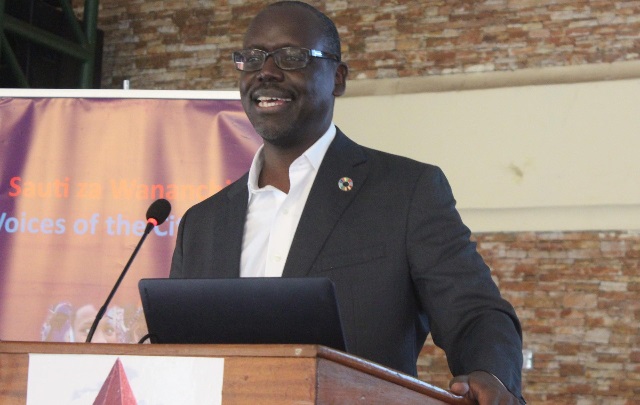
Kampala, Uganda | THE INDEPENDENT | Government officers must not use the official Secrets Act to deny citizens the right to access of information and records. It is emerging that civil servants at different levels have tended to use archaic laws like the official secrets act to deny citizens information.
The official Secrets Act prohibits officials from disclosing government information.
The call was made by the Director of Information, Communication and National Guidance, Simon Mayende as he launched the access to information guidelines for civil servants.
He says while the official secrets Act is part of the law books, it should not be used to deny citizens the right guaranteed by article 41 of the 1995 constitution.
Some civil servants have pretended to know little about the Access to Information law despite almost sixteen years since its enactment.
But Mayende, also a former Samia Bugwe MP who was representing State Minister for ICT at the launch of the guidelines said they will ensure that all civil servants especially communication officers abide with the law.
“Communication officers must attend all high level meetings. They must be invited to attend whether they are at junior or senior level. Because they can be able to access information at some of the management level meetings. That official Secrets Act should never be used to hide or deny information,” said Mayende.
Apart from the official secrets Act, laws such as the Regulations of Interception of Communications Act, 2010 and the Anti-Terrorism Act, 2002 provide additional barriers to citizens right to information and record.
It is hoped that the launch and popularization of the Access to Information guide for civil servants will increase awareness about the need to implement the Access to Information Act.
In March 2011, the Ministry of ICT and National Guidance published the Access to Information Regulations as required by section 47 of the Access to Information Act, 2005. But many Ugandans have continued to be denied information as simple as budgetary allocations and expenditure.
Reports by Twaweza and African Freedom of Information Centre (AFIC) found that few requests for information are being made. AFIC in 2019 found that majority of the information requests were being denied or unsuccessful.
According to the report, out of over four thousand access to information requests, less that one out of ten or (9%) were partially successful.
The Access to Information Act provides for a right of access and a duty to provide information. The Act applies strictly to information in possession of the state or public body.
Section 5 of the Act restates the right of access to information in almost similar terms as Article 41 of the Constitution. It obligates information officers to supply only accurate and up to date information.
Africa Freedom of Information Centre’s Legal and Research Officer, Susan Juliet Agwang said access to accurate and updated information is extremely important in the protection of rights and freedoms.
New data by Twaweza’s Sauti Za Wanainchi further demonstrated the difficulties citizens are going through in effort to access information and records. A survey from 1,500 respondents was conducted between October and December 2020.
Twaweza East Africa’s Senior Program Officer, Marie Nanyanzi said their date revealed that seven out of ten citizens (70%) say it is “not easy” to access information on government budgets, laws, and projects. She also noted that citizens confidence that they would be provided with information if they ask for it is declining.
Twaweza East Africa Executive Director, Aidan Eyakuze observed that access to public information is absolutely central to whether a given country or society develops or they stagnate and regress.
He said countries like Ukraine were able to save a billions of dollars annually by making public procurement purely public. Ukraine, according to Eyakuze was losing 2.4 billion dollars annually from corruption.
Aidan Eyakuze, a Tanzanian National said there has never been a time when information has been crucial than during a pandemic like COVID-19.
Some of the prominent Tanzanian that have died in recent times include its former President, Dr John Pombe Magufuli.
Some have suspected that he died of COVID-19 related infections. But the Presidency in the country said he died of a heart-related complication.
*****
URN
 The Independent Uganda: You get the Truth we Pay the Price
The Independent Uganda: You get the Truth we Pay the Price


